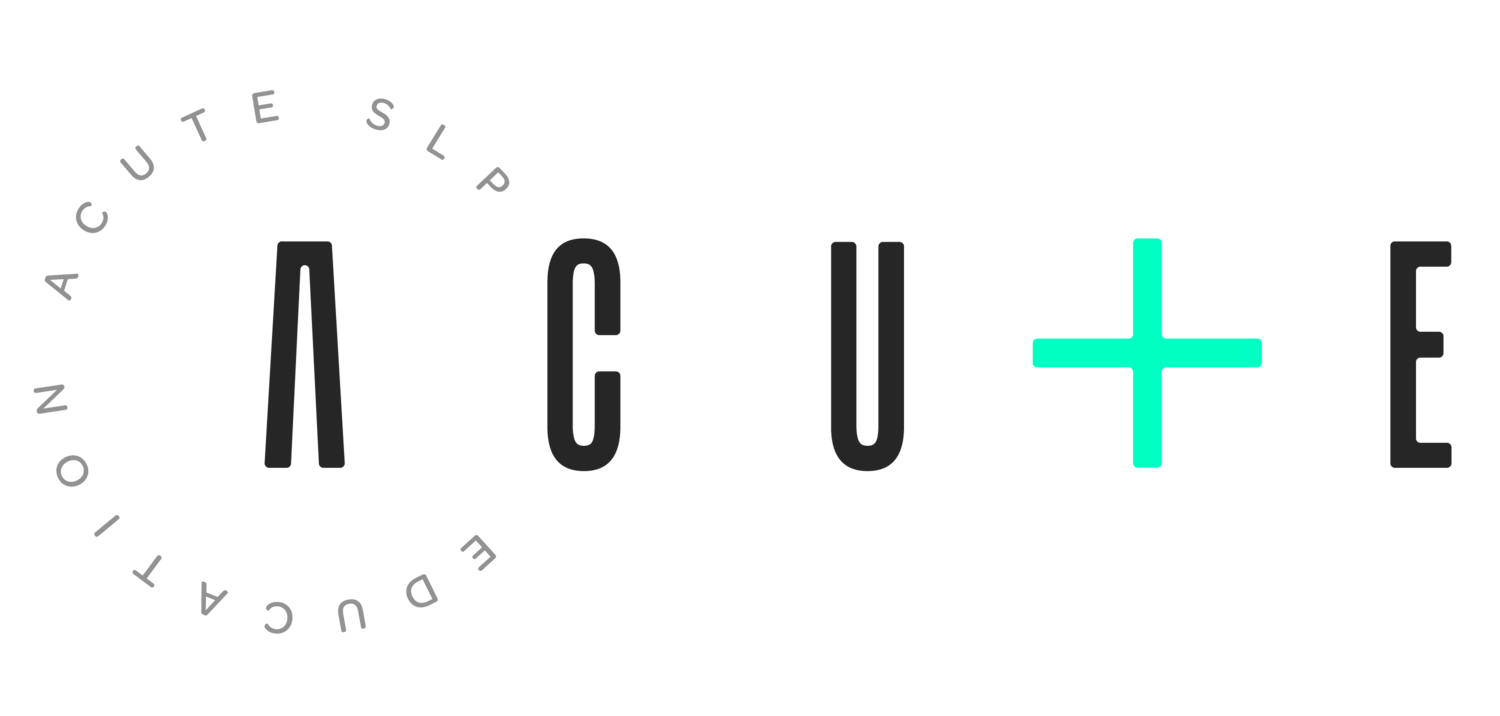ADDITIONAL COURSE INFORMATION:
Course Complexity:
Introductory-Advanced
Peer Reviewers:
Laryngologist – Dr. Inna Husain, MD
Respiratory Therapist – Booker Taylor, RRT
Learner Objectives:
1. Participants will identify parts of a tracheostomy tube and explain special considerations in tracheostomy tube selection
2. Participants will describe mechanics of one-way speaking valves, their impact on speaking and swallowing physiology, and methods for determining upper airway patency for use of one-way speaking valves
3. Participants will summarize key parameters of mechanical ventilation and relate those to the process of voice evaluation for patients with tracheostomy
4. Participants will explain the pathophysiology of dysphagia in tracheostomized patients and describe clinical considerations for the methods and timing of swallowing evaluations
5. Participants will list considerations for tracheostomy decannulation
6. Participants will recall inconsistencies in clinical management of patients with tracheostomy and propose methods for improving tracheostomy care
Course Agenda:
Introduction (0-5 mins): 5 min duration
Tracheotomy: Then + Now (5-8 mins): 3 min duration
Anatomy + Physiology Review (8-18 mins): 10 min duration
Terminology (18-25 mins): 7 min duration
Tracheostomy Tube Anatomy (25-53 mins): 28 min duration
Intubation + Ventilation 101 (53-61 mins): 8 min duration
Tracheotomy 101 (61-75 mins): 14 min duration
Tracheotomy Timing (75-82 mins): 7 min duration
Tracheotomy Approaches (82-92 mins): 10 min duration
Tracheostomy Tube Selection Considerations (92-129 mins): 37 min duration
Tracheostomy Tube Changes (129-139 mins): 10 min duration
Routine Tracheostomy Care (139-149 mins): 10 min duration
Modes of Oxygen Delivery for Tracheostomy Dependent Patients (149-151 mins): 2 min duration
Speaking Valves (151-157 mins): 6 min duration
Upper Airway Patency (157-163 mins): 6 min duration
Mechanical Ventilation (163-180 mins): 17 min duration
Subglottic Suction/Speech Port + Speech Cannula Use (180-183 mins): 3 min duration
Swallowing Assessment (183-193 mins): 10 min duration
Decannulation (193-198 mins): 5 min duration
Emergency Events + Procedures (198-200 mins): 2 min duration
Inconsistencies in Tracheostomy Management (200-202 mins): 2 min duration
Improving Clinical Care (202-210 mins): 8 min duration
Total time: 210 minutes (3.5 hours)
Speaker Information and Disclosures:
Kelsey Day, MS, CCC-SLP, BCS-S is an acute care Speech-Language Pathologist (SLP) and Board-Certified Specialist in Swallowing and Swallowing Disorders who specializes in dysphagia management for the medically complex, critically ill, and tracheostomy dependent populations. She currently serves as the Lead SLP in a trauma and stroke center in downtown Los Angeles, where she supervises a team of nine acute care SLPs.
Kelsey prides herself on fostering strong physician relationships and investing in new program development, which facilitate state-of-the-art care for her patients. She demonstrates her commitment to the education of medical SLPs through her mentorship and supervision of graduate student clinicians and Clinical Fellows in the acute care setting. She is a guest lecturer at several graduate-level SLP programs, visiting faculty at university hospital systems, and invited international keynote speaker.
Financial Disclosures:
• Salary from California Hospital Medical Center
• Ownership of Acute SLP Education, LLC, which operates this website and collects tuitions
• Shiley, Portex, Blom, and Passy-Muir tracheostomy tubes and accessories demonstrated in this course were donated by manufacturers for educational purposes
Non-Financial Disclosures:
• Swallow Your Pride podcasts on the topic of tracheostomy management
• Image and likeness used in Passy Muir promotional materials
• Publication in Passy Muir’s Aerodigestive Health
FAQs:
Can I earn continuing education credit for this webinar?
Yes, this course is offered for Professional Development Hours (PDHs) – formerly known as Certification Maintenance Hours (CMHs).
ASHA Certification Maintenance Standards require that all certificate holders (CCC-SLP) must accumulate 30 professional development hours (PDHs) [formerly certification maintenance hours (CMHs)] during each 3-year certification maintenance interval in order to maintain their ASHA Certificates of Clinical Competence (CCC).
For additional information regarding PDHs and requirements for professional development during your 3-year maintenance interval for ASHA, please visit https://www.asha.org/certification/factdef/ and see the below cited references.
American Speech-Language-Hearing Association. (n.d.). Professional development activities. Professional Development Activities. Retrieved March 2, 2022, from https://www.asha.org/certification/factdef/
American Speech-Language-Hearing Association. (n.d.). Professional Development for Certification. for Certification. Retrieved March 2, 2022, from https://www.asha.org/certification/profdevelopment/
American Speech-Language-Hearing Association. (n.d.). Requirements for maintaining your asha certification. Requirements for Maintaining Your ASHA Certification. Retrieved March 2, 2022, from https://www.asha.org/certification/maintain-ccc/
For whom is this webinar appropriate?
This course is appropriate for any medical Speech-Language Pathologist currently practicing with (or aiming to practice with) the tracheostomy dependent population. Course content begins with introductory information, then advances through intermediate and advanced concepts. This course is also appropriate for current graduate students in Speech-Language Pathology who have completed introductory coursework in anatomy/physiology and dysphagia and who plan to work in acute care settings.


